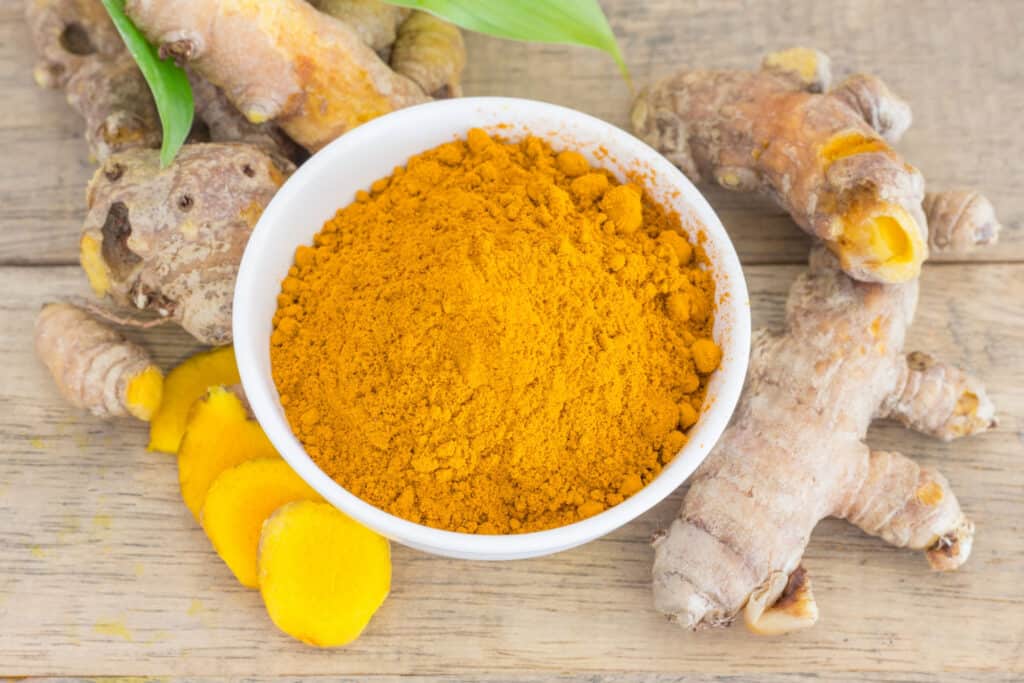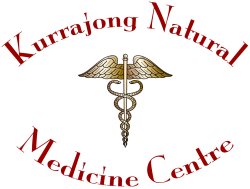Turmeric (Curcuma longa), The Golden Spice
Introduction
Turmeric, the vibrant golden spice derived from the rhizomes of the Curcuma longa plant, has been revered for its culinary and medicinal properties for centuries. Widely used in Indian and Asian cuisines, this remarkable herb has also gained recognition worldwide for its numerous health benefits.
Beyond its aromatic and flavour-enhancing qualities, turmeric boasts a rich history of therapeutic use, supported by a growing body of scientific research. In this article, we delve into the multifaceted health benefits of turmeric, highlighting its therapeutic actions and its potential to promote overall health and well-being.

Turmeric’s Therapeutic Actions
Turmeric owes its therapeutic prowess to its active compound, curcumin. Curcumin is a polyphenol with powerful anti-inflammatory, antioxidant, antimicrobial and anti-cancer properties. While curcumin is the most studied component of turmeric, the spice also contains other beneficial compounds, such as turmerones and curcuminoids, which contribute to its healing properties.
- Anti-Inflammatory Effects
Chronic inflammation is the root cause of many diseases, including heart disease, cancer, and neurodegenerative conditions. Curcumin has garnered attention for its potent anti-inflammatory properties. It works by inhibiting the activity of inflammatory enzymes and reducing the production of inflammatory cytokines. This ability to modulate the inflammatory response makes turmeric a valuable ally in combating various inflammatory disorders.
- Antioxidant Activity
Oxidative stress, characterised by an imbalance between free radicals and antioxidants in the body, plays a pivotal role in the aging process and the development of chronic diseases. Curcumin acts as a powerful antioxidant, scavenging free radicals and neutralising their harmful effects. By reducing oxidative stress, turmeric helps protect cells from damage and supports overall health.
- Pain Management
Turmeric has traditionally been used as a natural pain reliever. Its anti-inflammatory properties make it effective in alleviating pain associated with conditions like arthritis, muscle sprains, and joint injuries. Some studies suggest that turmeric’s pain-relieving effects are comparable to over-the-counter medications, without the potential side effects.
- Immune System Support
The immune system is the body’s defense against infections and illnesses. Turmeric has been shown to enhance the immune response by stimulating the activity of immune cells. This can help the body better fight off infections and may contribute to a reduced risk of illness.
- Digestive Health
In traditional herbal medicine, turmeric has been used to aid digestion and alleviate digestive disorders. It stimulates bile production, which aids in the digestion of fats. Additionally, its anti-inflammatory properties can help soothe the digestive tract and alleviate symptoms of conditions like irritable bowel syndrome (IBS) and indigestion.
- Brain Health
Curcumin has shown promise in supporting brain health and cognitive function. It may help protect against neurodegenerative diseases like Alzheimer’s by reducing inflammation, clearing amyloid plaques, and promoting the growth of new brain cells. Some research suggests that regular consumption of turmeric could help maintain cognitive function as individuals age.
- Heart Health
Heart disease is the leading cause of death worldwide, and inflammation and oxidative stress are key factors in its development. Turmeric may contribute to heart health by improving blood vessel function, reducing cholesterol levels, and lowering blood pressure. These effects can help reduce the risk of heart disease and improve overall cardiovascular well-being.
- Cancer Prevention and Treatment
While more research is needed, many studies have shown that curcumin has anti-cancer properties. It can inhibit the growth and spread of cancer cells, induce apoptosis (cell death) in cancer cells, and inhibit the formation of new blood vessels in tumors. However, it’s important to note that turmeric should not be considered a standalone treatment for cancer, but rather a potential complementary therapy.
- Anti-Arthritic Effects
Arthritis is a common condition characterised by joint inflammation and pain. Turmeric’s anti-inflammatory properties can be particularly beneficial for individuals with arthritis. Some studies have found that turmeric supplementation can reduce symptoms of osteoarthritis and rheumatoid arthritis, improving joint function and reducing pain.
- Skin Health
Topical application of turmeric, in the form of turmeric paste or creams, is known to improve various skin conditions. Its anti-inflammatory and antioxidant properties make it effective in treating acne, psoriasis, and eczema. In addition, it can promote wound healing and reduce the appearance of scars.
Health Benefits of Turmeric: A Closer Look
Now that we’ve explored the various therapeutic actions of turmeric, let’s take a look at its specific health benefits.
- Turmeric and Inflammatory Disorders
One of the most well-established benefits of turmeric is its ability to combat chronic inflammation. Chronic inflammation is at the core of many diseases, including cardiovascular disease, diabetes, cancer, and autoimmune conditions. Curcumin, as the primary anti-inflammatory compound in turmeric, exerts its effects by inhibiting the activity of nuclear factor-kappa B (NF-κB), a key player in the inflammatory response. By doing so, it reduces the expression of pro-inflammatory genes and mitigates inflammation throughout the body.
Studies have shown promising results in conditions such as rheumatoid arthritis, where turmeric supplementation led to significant reductions in symptoms like joint pain and stiffness. Similarly, individuals with inflammatory bowel disease (IBD) have reported improvements in symptoms with turmeric supplementation. While turmeric alone may not replace conventional treatments for these conditions, it can be a valuable complementary approach to managing inflammation and reducing the need for high doses of pharmaceutical medications.
- Turmeric and Antioxidant Defense
Turmeric’s antioxidant properties play a vital role in protecting cells and tissues from oxidative damage. Oxidative stress, caused by an excess of free radicals in the body, can lead to cellular dysfunction and accelerate aging. Moreover, it is a contributing factor in various chronic diseases, including cancer, cardiovascular disease, and neurodegenerative disorders.
Curcumin acts as a potent antioxidant by neutralizing free radicals and boosting the activity of the body’s own antioxidant enzymes. This dual action helps to maintain the delicate balance between free radicals and antioxidants, preventing oxidative stress from wreaking havoc on the body.
- Turmeric and Joint Health
Arthritis, characterized by inflammation and pain in the joints, affects millions of people worldwide. Turmeric’s anti-inflammatory and analgesic properties make it a promising natural remedy for arthritis management. Research has shown that curcumin can reduce the symptoms of osteoarthritis and rheumatoid arthritis, two common forms of arthritis.
In osteoarthritis, curcumin has been found to suppress the production of inflammatory cytokines and enzymes that degrade joint cartilage. This helps preserve joint function and reduce pain. In rheumatoid arthritis, curcumin’s ability to modulate the immune response is particularly relevant. It can help alleviate joint inflammation and slow down the progression of the disease.
- Turmeric and Heart Health
Cardiovascular disease is a leading cause of death worldwide. Turmeric’s potential benefits for heart health stem from its ability to improve several key risk factors. For instance:
Cholesterol Reduction: High levels of LDL (low-density lipoprotein) cholesterol are a significant risk factor for heart disease. Curcumin has been shown to reduce LDL cholesterol levels, helping to lower the risk of atherosclerosis and heart attacks.
Blood Pressure Regulation: High blood pressure (hypertension) is another risk factor for heart disease. Some studies suggest that curcumin can help relax blood vessels and reduce blood pressure, contributing to better heart health.
Anti-Platelet Effects: Curcumin’s anti-platelet activity can help prevent the formation of blood clots, which can lead to heart attacks and strokes.
Anti-Inflammatory Properties: Chronic inflammation is closely linked to cardiovascular disease. By reducing inflammation, curcumin may help protect the heart and blood vessels.
Improved Endothelial Function: Curcumin may improve the function of the endothelium, the lining of blood vessels. Dysfunction of the endothelium is an early indicator of heart disease.
While turmeric can be a valuable addition to a heart-healthy diet and lifestyle, it should not replace prescribed medications or medical advice for individuals with established heart conditions. Instead, it can complement conventional treatments and contribute to overall cardiovascular well-being.
- Turmeric and Brain Health
The brain is one of the body’s most vital organs, and its health is closely linked to overall well-being. Curcumin’s potential to support brain health has garnered significant interest from researchers. Here are some ways in which turmeric may benefit the brain:
Alzheimer’s Disease: Alzheimer’s disease is characterized by the accumulation of beta-amyloid plaques and neurofibrillary tangles in the brain, along with chronic inflammation. Curcumin has been shown to reduce the build-up of these abnormal proteins and decrease inflammation, potentially slowing the progression of Alzheimer’s.
Depression and Anxiety: Some studies suggest that curcumin may have antidepressant and anxiolytic (anxiety-reducing) effects. It may increase the levels of neurotransmitters like serotonin and dopamine, which play a role in mood regulation.
Neurogenesis: Curcumin has been found to promote the growth of new neurons in the brain, a process known as neurogenesis. This could have implications for improving cognitive function and maintaining brain health as we age.
Neuroprotection: Curcumin’s antioxidant and anti-inflammatory properties may protect brain cells from damage caused by oxidative stress and inflammation, reducing the risk of neurodegenerative diseases.
While these findings are promising, more research is needed to fully understand the potential of turmeric in maintaining cognitive function and preventing brain-related disorders.
- Turmeric and Cancer Prevention
Cancer is a complex group of diseases characterized by the uncontrolled growth and spread of abnormal cells. While research into curcumin’s anti-cancer properties is ongoing, several mechanisms suggest its potential as a cancer-fighting agent:
Anti-Proliferative Effects: Curcumin can inhibit the growth of cancer cells by disrupting cell division and inducing cell death (apoptosis).
Anti-Angiogenic Effects: Curcumin can prevent the formation of new blood vessels in tumors, starving them of the nutrients they need to grow.
Anti-Metastatic Effects: Curcumin may inhibit the spread of cancer cells to other parts of the body by interfering with cellular signaling pathways involved in metastasis.
Enhanced Chemo and Radiotherapy: Some studies indicate that curcumin can enhance the effectiveness of chemotherapy and radiation therapy while reducing their side effects.
Protection Against DNA Damage: Curcumin’s antioxidant properties may protect DNA from damage caused by free radicals, reducing the risk of mutations that can lead to cancer.
It’s important to note that while turmeric and curcumin show promise as potential cancer preventatives and adjunct therapies, they should not be used as a substitute for conventional cancer treatment. Anyone with a cancer diagnosis should consult with a healthcare professional to develop a comprehensive treatment plan.
- Turmeric and Digestive Health
Turmeric has been used for centuries to support digestive health. Its ability to stimulate bile production can aid in the digestion of fats and improve overall digestive function. Additionally, its anti-inflammatory properties may help soothe the digestive tract and alleviate symptoms of gastrointestinal disorders.
Irritable Bowel Syndrome (IBS): Some individuals with IBS report symptom relief with turmeric supplementation. Curcumin’s anti-inflammatory effects may help reduce abdominal pain and discomfort associated with IBS.
Indigestion: Turmeric has traditionally been used as a remedy for indigestion. It can help alleviate symptoms like bloating and gas by promoting healthy digestion.
Gastric Ulcers: Curcumin’s anti-inflammatory and antioxidant properties may help protect the stomach lining from damage and support the healing of gastric ulcers.
Inflammatory Bowel Disease (IBD): While more research is needed, early studies suggest that turmeric may have a role in managing the symptoms of Crohn’s disease and ulcerative colitis, two forms of IBD.
- Turmeric and Immune Support
A robust immune system is essential for protecting the body against infections and illnesses. Turmeric may support immune function through several mechanisms:
Immune Cell Activation: Curcumin has been shown to stimulate the activity of immune cells, such as T cells and B cells, which play a crucial role in the immune response.
Anti-Microbial Properties: Turmeric’s antimicrobial properties may help fend off infections and reduce the severity of symptoms when illness strikes.
Anti-Viral Effects: Some studies suggest that curcumin can inhibit the replication of certain viruses, potentially reducing the risk of viral infections.
Anti-Allergic Effects: Curcumin’s anti-inflammatory properties may help alleviate allergy symptoms by reducing the release of histamines and other inflammatory compounds.
Autoimmune Conditions: While more research is needed, curcumin’s immune-modulating effects may be beneficial for individuals with autoimmune conditions by helping to regulate the immune response.
- Turmeric and Skin Health
The benefits of turmeric aren’t limited to internal health; they extend to the skin as well. Here’s how turmeric can promote healthy skin:
Acne Treatment: Turmeric’s anti-inflammatory and antibacterial properties make it effective in treating acne. It can help reduce redness and inflammation while preventing the growth of acne-causing bacteria.
Psoriasis Management: Some individuals with psoriasis find relief from applying turmeric topically. Curcumin’s anti-inflammatory properties can help soothe psoriasis plaques and reduce itching.
Eczema Relief: Turmeric may alleviate symptoms of eczema, such as itching and redness. Its anti-inflammatory effects can help calm irritated skin.
Wound Healing: Turmeric has been used for centuries to aid in wound healing. Its antimicrobial properties can help prevent infection, while its anti-inflammatory effects may reduce swelling.
Scar Reduction: Topical application of turmeric may help reduce the appearance of scars by promoting collagen production and tissue repair.
To use turmeric for skin health, it can be mixed with other natural ingredients like honey, yogurt, or coconut oil to create soothing masks and treatments. However, individuals with sensitive skin should perform a patch test before applying turmeric topically, as it may cause irritation in some cases.
- Turmeric and Weight Management
Maintaining a healthy weight is essential for overall well-being. While turmeric is not a magic weight-loss solution, it may offer support in weight management through various mechanisms:
Metabolic Support: Curcumin has been shown to enhance metabolism by increasing the production of adiponectin, a hormone that helps regulate metabolism and blood sugar levels.
Appetite Control: Some studies suggest that curcumin can help control appetite and reduce food cravings, which can be beneficial for individuals trying to manage their weight.
Anti-Inflammatory Effects: Chronic inflammation is linked to obesity. By reducing inflammation, curcumin may contribute to weight loss and improved metabolic health.
Liver Health: Curcumin supports liver function, which is crucial for fat metabolism and detoxification. A healthy liver is essential for maintaining a healthy weight.
It’s important to emphasize that turmeric alone is not a weight-loss miracle. It should be incorporated into a balanced diet and active lifestyle to achieve and maintain a healthy weight.
Conclusion
Turmeric, often referred to as “the golden spice,” has earned its place as a revered herb in traditional medicine and a subject of extensive scientific research. One of its active compounds, curcumin, possesses a wide range of therapeutic actions, making it a valuable ally in promoting overall health and well-being.
From its potent anti-inflammatory and antioxidant properties to its potential in managing conditions like arthritis, heart disease, and even cancer, turmeric’s benefits are far-reaching. Additionally, its positive impact on brain health, digestive function, and immune support further solidify its status as a versatile and holistic health-enhancing spice.
While incorporating turmeric into your diet can offer numerous advantages, it’s important to do so as part of a balanced and varied diet. For individuals with specific health concerns or conditions, it’s advisable to consult with a qualified herbalist before starting any supplementation or treatment regimen involving turmeric or curcumin.
As research continues to uncover the depth of turmeric’s health benefits, it’s clear that this golden spice holds immense potential in enhancing and supporting our journey toward better health and vitality. Whether enjoyed in a delicious curry or taken as a dietary supplement, turmeric is a shining example of nature’s ability to provide both culinary delight and profound well-being.
Disclaimer
Disclaimer information for users of the Kurrajong Natural Medicine Centre, Namaste Yoga Kurrajong and The Herbal Health Coach website.
Page last updated: 26th June 2023
Information provided for education and research information only
The information on this website is presented by Kurrajong Natural Medicine Centre for the purpose of disseminating health information free of charge for the benefit of the public.
While Kurrajong Natural Medicine Centre has exercised due care in ensuring the accuracy of the material contained on this website, the information on the site is made available on the basis that Kurrajong Natural Medicine Centre is not providing professional advice on a particular matter.
This website is not a substitute for independent professional advice. Nothing contained in this site is intended to be used as medical advice and it is not intended to be used to diagnose, treat, cure or prevent any disease, nor should it be used for therapeutic purposes or as a substitute for your own health professional’s advice.
Kurrajong Natural Medicine Centre does not accept any liability for any injury, loss or damage incurred by use of or reliance on the information provided on this website.
Quality of information
Kurrajong Natural Medicine Centre makes every effort to ensure the quality of the information available on this website and updates the information regularly. Before relying on the information on this site, however, users should carefully evaluate its accuracy, currency, completeness and relevance for their purposes, and should obtain any appropriate professional advice relevant to their particular circumstances. Kurrajong Natural Medicine Centre cannot guarantee and assumes no legal liability or responsibility for the accuracy, currency, completeness or interpretation of the information.
The material may include the views or recommendations of third parties and does not necessarily reflect the views of Kurrajong Natural Medicine Centre or indicate a commitment to a particular course of action.
Links to other websites
This website contains links to other websites which are external to Kurrajong Natural Medicine Centre. Kurrajong Natural Medicine Centre takes reasonable care in selecting linking websites but Kurrajong Natural Medicine Centre accepts no responsibility for material contained in a website that is linked to this site. It is the responsibility of the user to make their own decisions about the accuracy, currency, reliability and correctness of information contained in linked external websites.
Links to external websites are provided for the user’s convenience and do not constitute an endorsement or a recommendation of any third party products or services offered by virtue of any information, material or content linked from or to this site. Users of links provided by this site are responsible for being aware of which organisation is hosting the site they visit.
Views or recommendations provided in linked sites may include the views or recommendations of third parties and do not necessarily reflect those of Kurrajong Natural Medicine Centre or indicate a commitment to a particular course of action.



